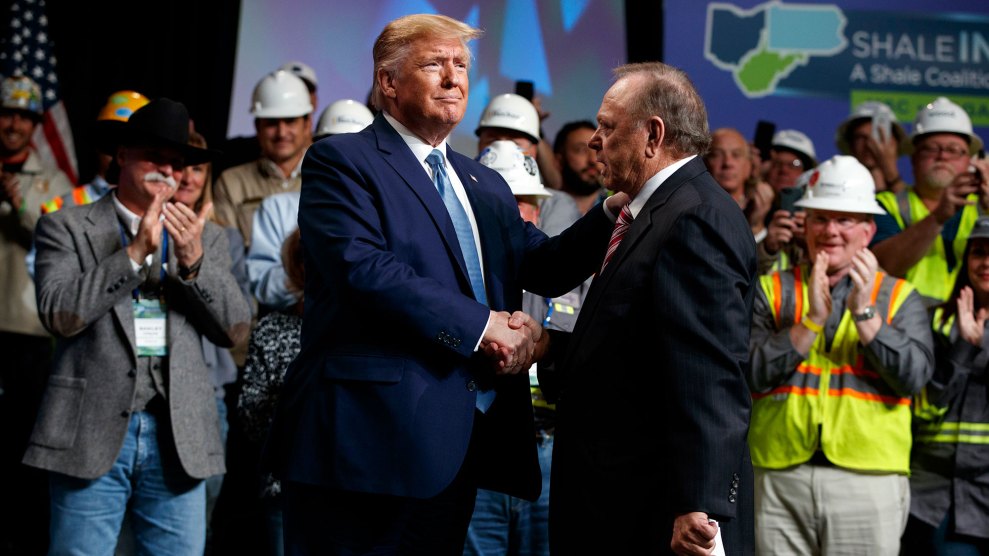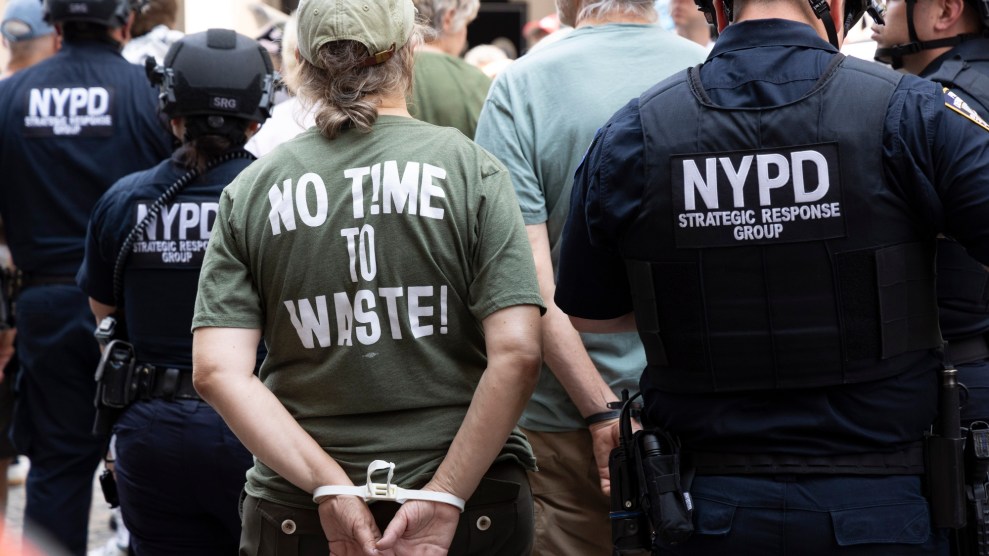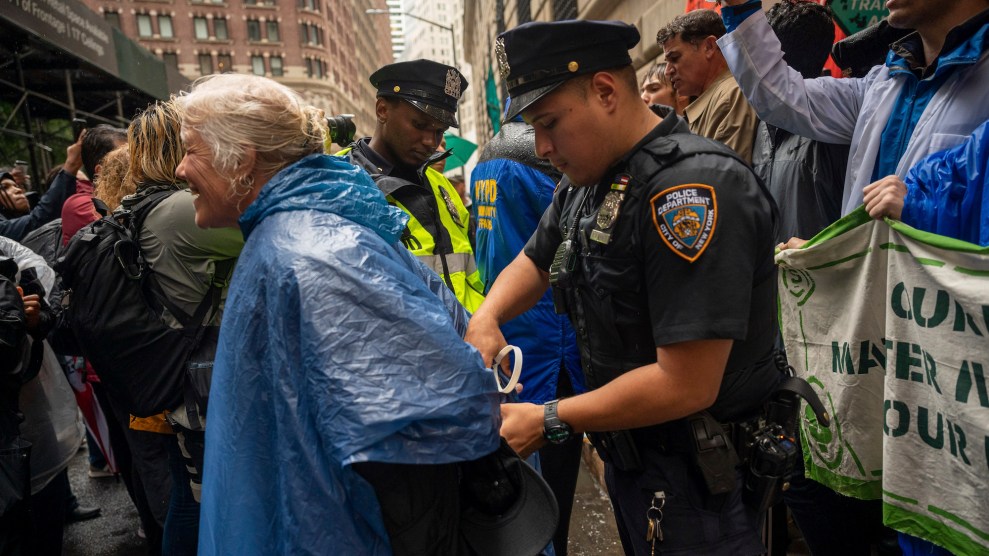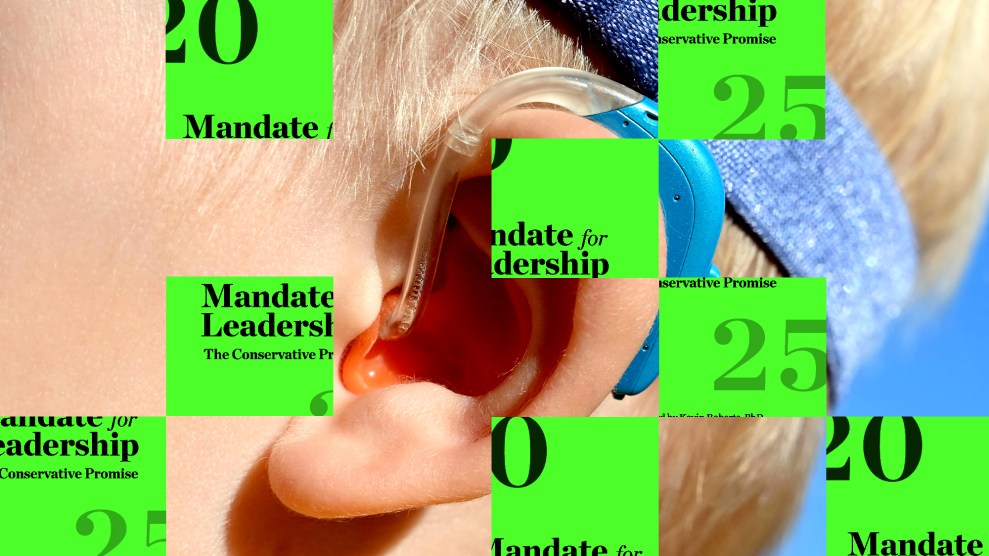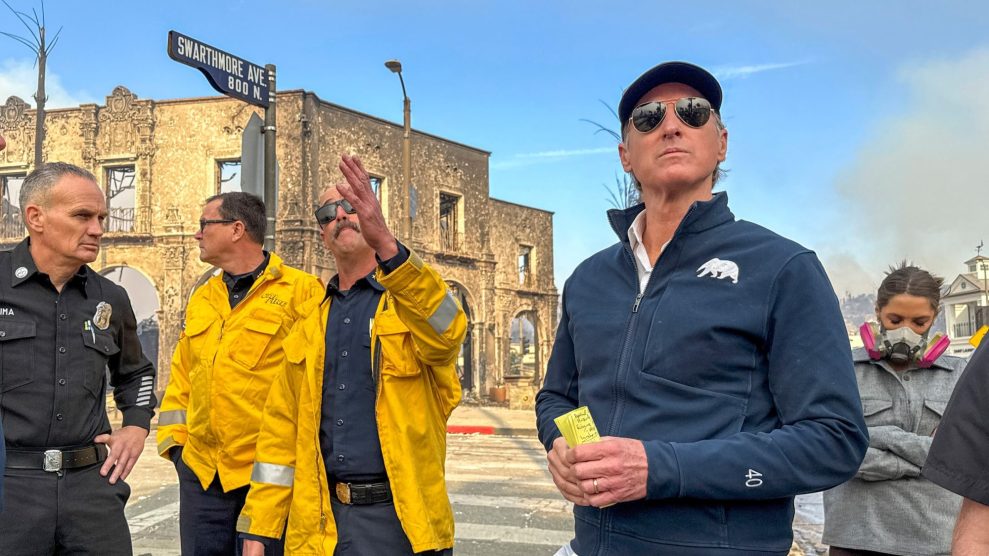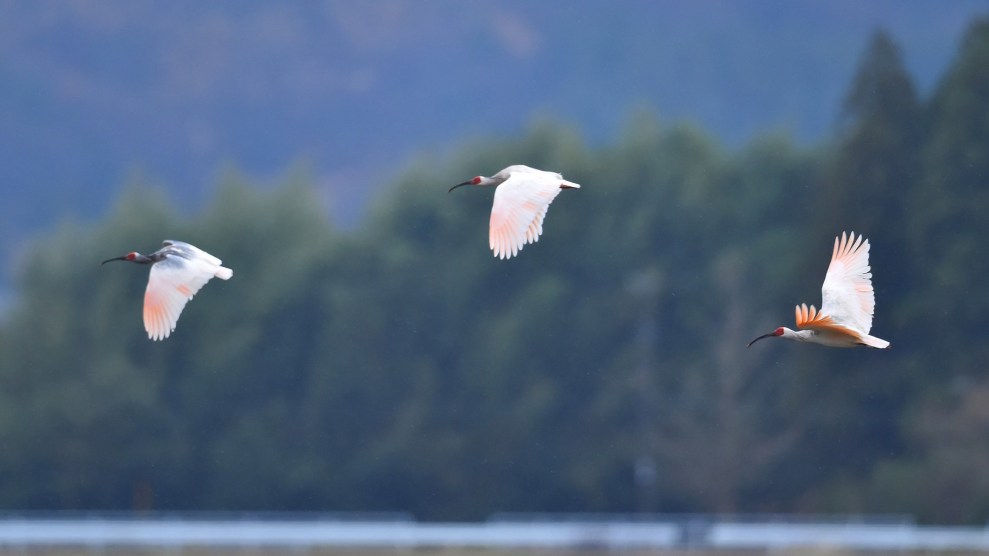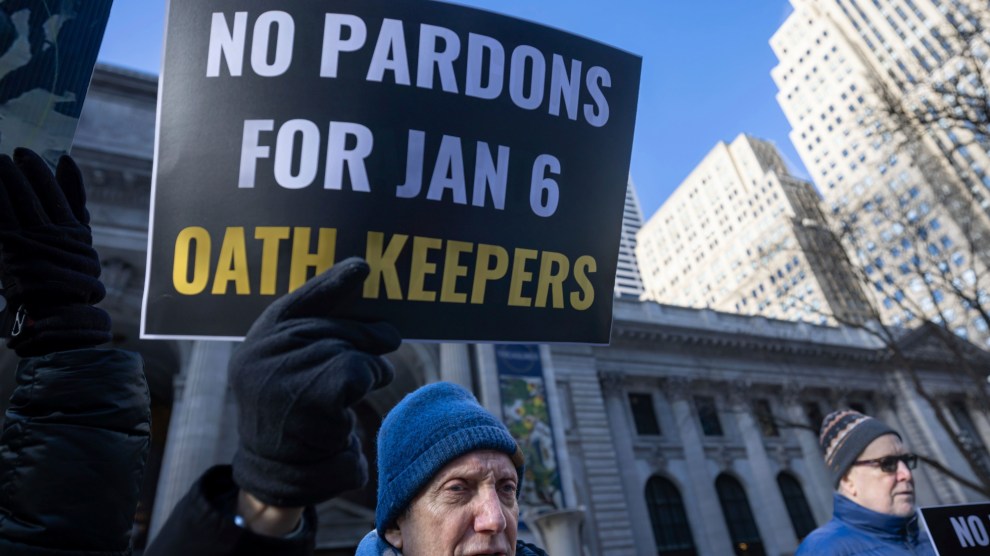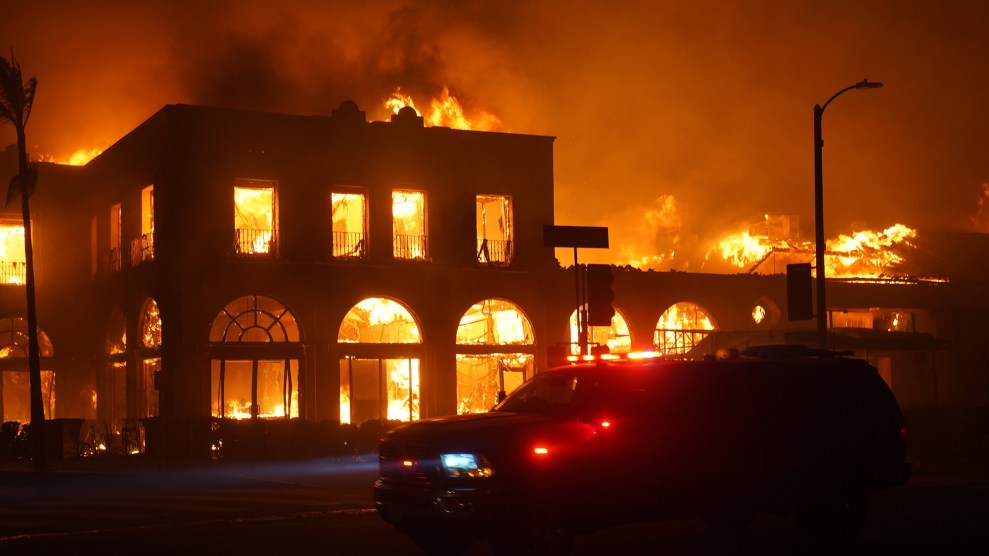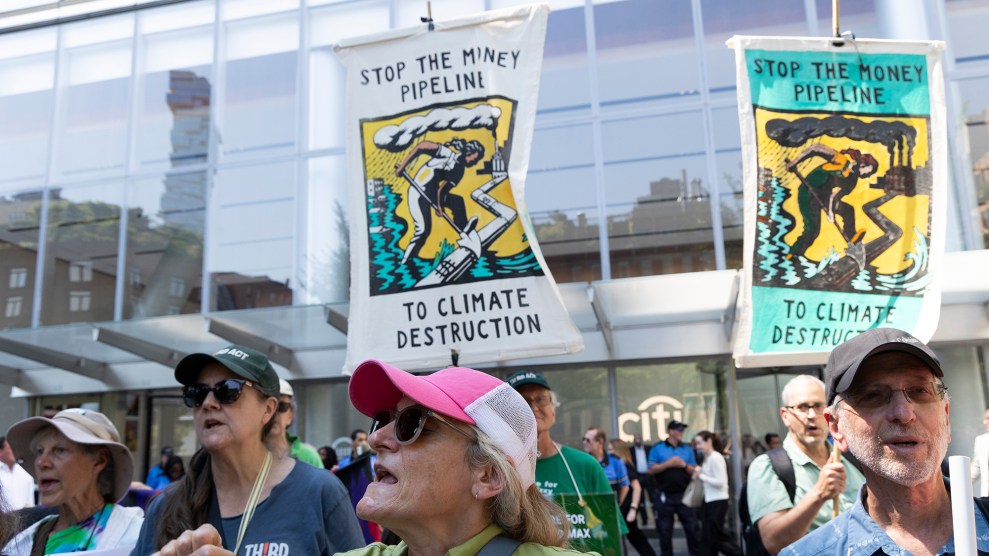
Elder activists with the group Third Act gather outside Citibank's headquarters to protest its funding of fossil fuels.Gina M Randazzo/ZUMA
This story was originally published by the Guardian and is reproduced here as part of the Climate Desk collaboration.
Back in early August, I reported on the arrest of two climate activists outside the New York headquarters of Citibank, one of the world’s largest fossil fuel financiers and target of a campaign known as Summer of Heat.
John Mark Rozendaal, a former music instructor at Princeton University, and Alec Connon, director of the climate nonprofit group Stop the Money Pipeline, were detained for 24 hours and charged with criminal contempt, which carries up to seven years in prison. Why? Rozendaal was playing a Bach solo on his cello while Connon sheltered him with an umbrella—which police claimed broke the conditions of a temporary restraining order that related to another bogus charge of assault (that was later dropped).
Mary Lawlor, the UN special rapporteur on human rights defenders, took up the pair’s case, and together with three other UN experts wrote a formal letter to the US government explaining their fears that the charges were without foundation, and appeared to be a punishment for participating in peaceful protests on the climate crisis and human rights.
“Authorities should be listening to defenders, but they are not…they are being met with criminalization.”
Lawlor and the other UN experts wrote to US authorities: “Please indicate what steps have been taken and measures put in place to ensure that all human rights defenders taking peaceful action to promote measures to mitigate climate change and a just transition can carry out their work free from fear of threat, violence, harassment or retaliation of any sort.”
Lawlor made the letter public on December 3 after they failed to respond—it’s customary to give states 60 days to respond privately to special rapporteurs before communications are published. “Authorities should be listening to defenders, but they are not…they are being met with criminalization,” Lawlor told me. “The climate crisis is a human rights crisis, but states aren’t responding as they should.”
Rozendaal and Connon pleaded guilty to “disorderly conduct” for playing the cello and holding an umbrella. They were among thousands of climate activists who over the summer participated in a series of nonviolent protests calling on Citibank to stop financing the oil and gas industry and increase funding for renewables. Many activists were arrested but most cases were dismissed, with just a handful proceeding through the courts.
Amid continuing fossil fuel expansion, activists in the US and around the world have turned to protests and nonviolent civil disobedience—such as blocking roads and chaining themselves to trees and equipment as a way to slow down construction—to raise public awareness and press for more urgent climate action by governments, corporations, and financiers. In response, peaceful climate activists are facing trumped-up criminal and civil charges amid mounting evidence of collusion between corporations, lawmakers and state security forces.
Around a third of the climate activists Lawlor’s team helped between May 2020 and the end of 2023 had faced criminal or civil action in retaliation for their work. They’ve dealt with even more cases this year, as deploying the justice system against environmental and climate defenders is a modus operandi being adopted by democracies and autocratic states alike.
Earlier this week, 15 student activists in Uganda were granted bail after spending a month in jail. The students were charged with common nuisance while attempting to deliver a petition to parliament to stop the 900-mile transnational east African crude oil pipeline. In the UK this June, five supporters of the Just Stop Oil climate campaign received record sentences after being found guilty of conspiracy to cause gridlock on the M25 motorway. In fact, on Wednesday the Guardian reported Britain has the dubious honour of leading the world in arrests of environmental protesters, at “nearly three times the global average rate.”
In the US, Energy Transfer Partners, the company behind the Dakota Access pipeline, is suing Greenpeace for $300 million related to the 2016-17 Standing Rock protests. The case is scheduled to go to trial in North Dakota in February and, if the jury sides with the company, it could create a new legal precedent that would have major ramifications for environmental groups organizing against fossil fuels. In Atlanta, Georgia, 61 social and climate justice activists opposed to the construction of a massive police training facility on an urban forest have been charged with racketeering—a crime usually used to prosecute those involved in organized crime. Meanwhile, president-elect Donald Trump, whose cabinet nominations include several climate deniers, has vowed to quell protests and “drill, baby, drill.”
The global crackdown against climate activists and groups is one to watch next year. It is clearly part of the fossil fuel industry’s strategy to crush dissent and keep burning the planet.
